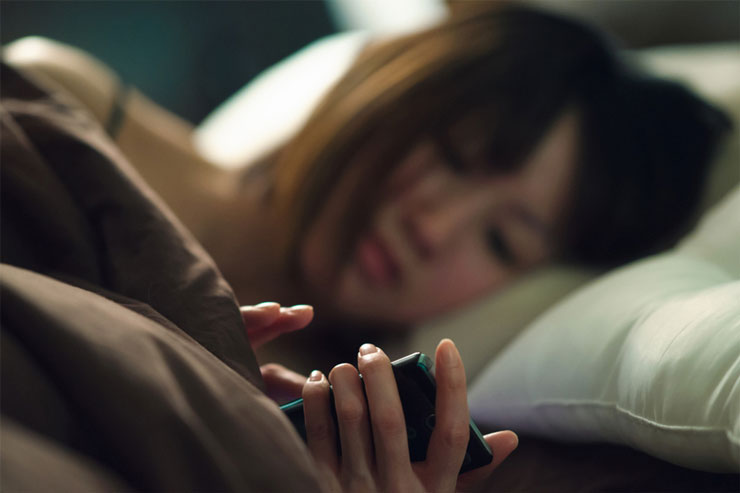Let’s face it — we’ve never met a screen we didn’t like. From our desktop computers and laptops, to our pads, tablets and phones, we’ve got our eyes trained on a screen from the moment we get up and check our emails to late at night when we read ourselves to sleep, bathed in the blue light of our e-readers. Disregarding the social ramifications of living in a society where people are more likely to interact with electronic devices than one another, the damage we’re doing to our eyes, necks and backs is intensifying daily. “The head-down position that we assume while looking at phones, tablets and laptops strains the muscles in the neck, and the pain can extend all the way down your spine to your lower back,” explains chiropractor Tim Hutchful. “This is especially bad for you if you are using them for hours on end because your body will eventually start to assume a hunched position.” As the adoption rate of mobile technologies as the devices of choice in the workplace continues to increase, neck and back pain due to “screen hunch” is replacing tunnel carpal syndrome as the most common office-related injury.

But the damage we do extends well past office hours. According to a study published in the Journal of Neuroscience, being exposed to blue wavelength lights — the kind emitted by computers, tablets, and smartphones — can interfere with sleep patterns. “If you use tablet or a laptop close to bedtime the light it emits can be sufficiently stimulating to the brain to make it more awake and delay your ability to sleep,” says Phyllis Zee, a neuroscience professor at Northwestern University and director of the school’s Center for Sleep & Circadian Biology. When receptors in our eyes are hit with bright light for an extended period of time, they send a message to the brain instructing it to say awake. The brain, in turn, stops secreting a hormone called melatonin, which induces sleepiness while helping to regulate our internal sleep clock.

Normally, our brains start giving us that hormonal sleep aid at about 9 or 10 p.m. But if bright lights are shining in our eyes, that may not happen as planned. To make matters worse, our eyes are particularly sensitive to blue light, which is common during the day, but is less so in the evening. The fact that computer screens and phones produce blue light can intensify the awakening effects, even if the light isn’t bright. Alas, technology got us into this mess, and now it might be getting us out. A free, downloadable program called F.lux will automatically adjust the hues on your computer screen to eliminate blues when the sun starts setting — and then replace them when it rises again.
